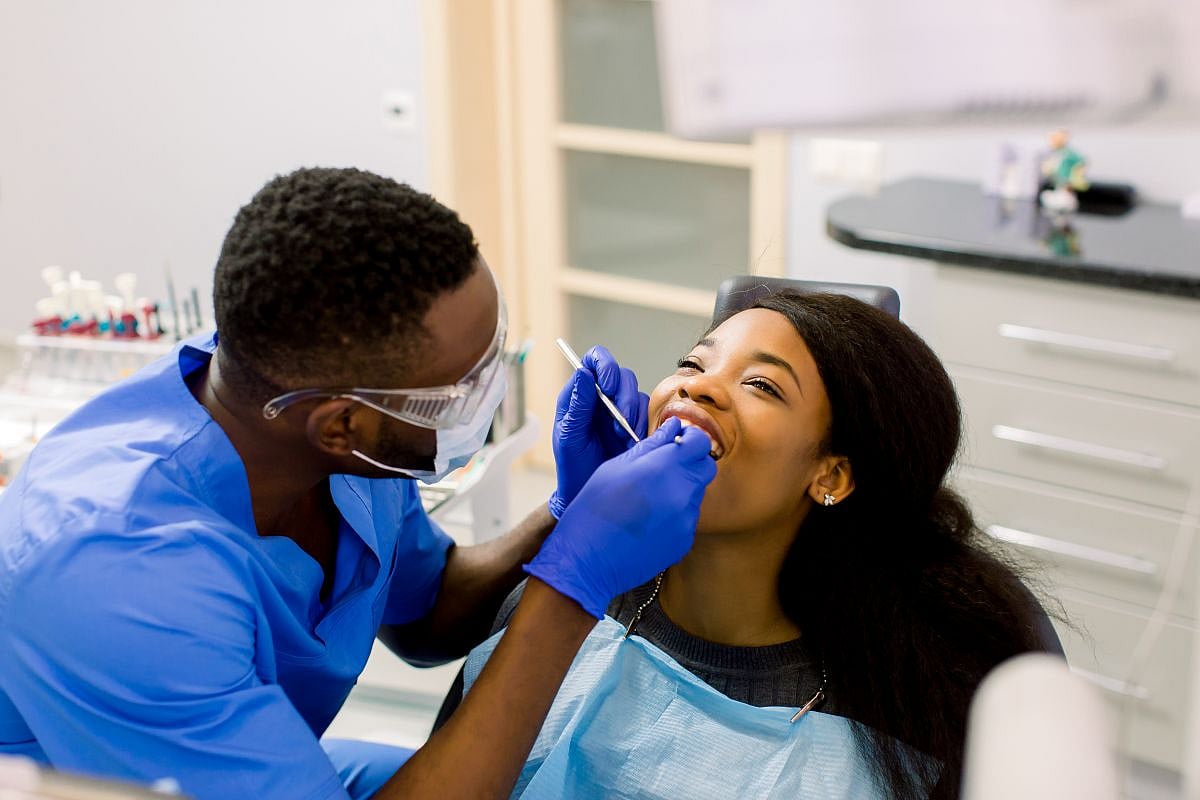(330) 876-1228
8507 Main StreetKinsman, OH 44428
(330) 876-1229

Afraid of the dentist? You’re far from alone, a new study says.
Nearly 3 of 4 adults fear going to the dentist, researchers report in the September issue of the Journal of the American Dental Association.
That means dental fear is even more widespread than earlier thought. Estimates had held that only about a quarter of Americans were anxious about visiting the dentist, researchers said in background notes.
Instead, nearly 73% of U.S. adults said they had some dental fear, including about 46% with moderate fear and 27% with extreme fear, according to poll results.
These fears are rooted in earlier traumatic trips to the dentist, often as a child or teenager, according to results from a related study published earlier this month in the journal Oral.
Patients recalling the origins of their dental fear said childhood experiences left them as adults “white knuckled,” breaking “into a cold sweat,” and with “a pit in my stomach” every time they go to the dentist, researchers said.
“A better understanding of dental fear — and how to increase access to effective treatments for it — holds promise for improving oral and overall health,” researcher Richard Heyman, a professor in the NYU Dentistry Center for Oral Health Policy and Management, said in a news release.
This isn’t just a matter of jitters — these fears can have a severe impact on a person’s oral health, researchers said.
People anxious about dental visits often avoid routine cleanings and care, only visiting a dentist when they have a toothache, researchers said.
This creates a cycle of fear, as a lack of preventive care can compromise the health of teeth and gums, and lead to more fear-inducing pain, infections and dental work.
“To this day, I put off seeing a dentist, with the results being a root canal and broken teeth,” one of the patients recalled.
“Memories of traumatic dental care can be remarkably vivid and tend to have lifelong implications,” lead researcher Kelly Daly, an assistant research scientist in NYU Dentistry’s Family Translational Research Group, said in a news release.
However, these anxious folks aren’t just shrugging off their concerns.
More than 71% said they’d be interested in a free, brief treatment for dental fear that could be completed at home, according to results from a nationwide survey of 1,003 people.
Researchers are now testing a program called Dental FearLess that uses an app to treat dental fear using cognitive behavioral therapy and mindfulness. In a pilot study, half of participants were no longer fearful after completing the program.
“While dental fear is highly treatable, few professionals have received relevant training or offer treatment,” Heyman said. “Brief, virtual dental fear treatments using apps and telehealth have the potential to reach many people, regardless of where they live.”
Prior research found that more than half of people with an extreme fear of dentistry have had negative experiences, often as a child or teenagers.
Despite this, little attention has been paid to the role of these memories in driving people’s fears.
In the second study, researchers analyzed survey data and written reflections from patients about dental fear. These included 17 parents of children with dental fear and 58 patients going to an NYU College of Dentistry clinic for care.
They found that many people with dental fear have memories of pain and negative interactions with dentists.
For example, they found that some recalled a dentist putting a hand over their mouth to stop disruptive behavior, a technique that has fallen out of favor and been removed from clinical guidelines.
“The experience with the dentist who slapped me stays with me til this day,” one patient said. “When I go to the dentist, that memory always comes back.”
The patients also recalled experiences that led them to think of dentists as untrustworthy. These encounters made patients feel humiliated, think that dentists won’t listen to them, or become suspicious that dentists were recommending unnecessary treatments.
“The salience of these memories — particularly ones from childhood — and ways that lifelong oral health care can be compromised are important lessons for practicing dental providers,” Daly said. “Many of these negative experiences can be avoided with open and transparent communication between providers and patients.”
More information
The Cleveland Clinic has more about dentophobia.
SOURCES: NYU College of Dentistry, news release, Sept. 2, 2025; Oral, Sept. 1, 2025
